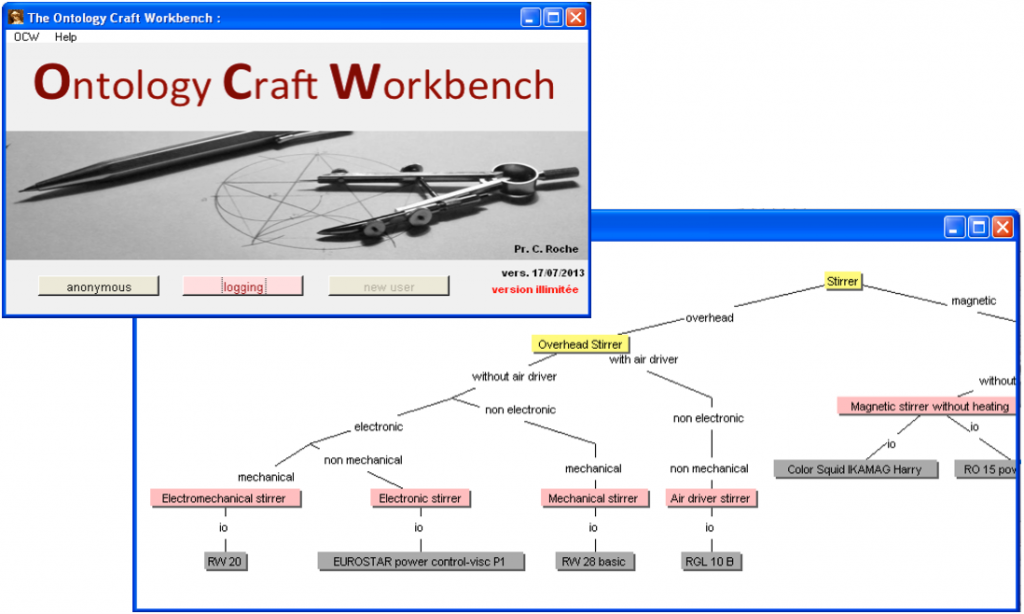Ontology
Ontology in Knowledge Engineering is defined as a formal specification of a conceptualization of a domain, which means a définition of concepts and their relations in a language understandable both by humans and computers.
« An ontology is a conceptualisation of a domain to which one or several vocabularies can be associated and which participates to the meaning of terms. Defined for a given objective, an ontology expresses a point of view shared by a community. An ontology is represented in a language (explicit ontology) whose theory (semantics) guarantees the properties of the ontology in terms of consensus, coherence, sharing and reuse. » [1]
My work on Ontology aims to reconcile epistemological and logical principles into a computational model [2], [3], [4].

OCW is based on an agent-oriented architecture written in Smalltalk, and on a dedicated language for writing ontologies by specific differentiation called LOK, Language for Ontological Knowledge, a « à la Lisp » language.
The OK ontologies can be exported into different exchange formats like OWL and RDF.
Bibliography
[1] Ontology : a survey. C. Roche. 8th Symposium on Automated Systems Based on Human Skill and Knowledge – IFAC, September 22-24 2003, Göteborg, Sweden
[2] The ‘Specific-Difference’ Principle: a Methodology for Building Consensual and Coherent Ontologies. C.Roche. IC-AI’2001: Las Vegas, USA, June 25-28, 2001
[3] The Differentia Principle: a Cornerstone for Ontology. C.Roche. Knowledge Management and Philosophy; Workshop in WM 2003 Conference, Luzern, 2-4 april, 2003
[4] Aristotelian Ontologies and OWL Modeling. M. Spies, C.Roche. Handbook of Ontologies for Business Interaction, Chap. II, 2008, pp. 21-33
